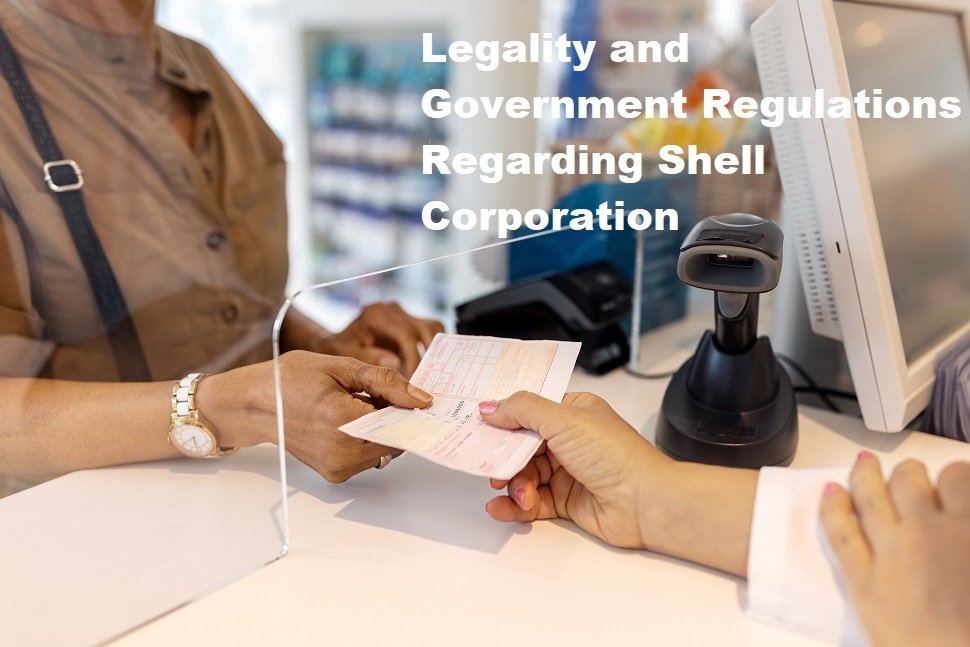Understanding Shell Corporation
Shell Corporation is a business entity that has no significant assets, operations or business activities. Usually, these types of companies are established with the aim of carrying out certain functions and objectives, but they do not carry out real business operations. Shell Corporation is often considered a company without substance because it only has a basic corporate structure but no underlying economic substance.
The main function of Shell Corporation is to protect the identity of the true owner of the company to remain confidential. This goal can be achieved because these companies exist in name and address only, without any assets or operations that can be directly linked to the people behind them. Additionally, Shell Corporation owners often use this entity as an investment vehicle or tool to move funds between countries.
However, there are also several valid reasons for establishing a Shell Corporation. One of them is as a financial tool in the context of business mergers or acquisitions between companies. Apart from that, Shell Corporation can be used in the company restructuring process or to avoid conflicts of interest between investors or members of the company’s board of directors.
However, it is important to emphasize that Shell Corporation’s use may be prone to abuse. Most of Shell Corporation’s use cases are aimed at evading taxes, breaking regulations, and even becoming a means of money laundering and other illegal activities. Therefore, it is important for regulators and competent authorities to monitor the existence and activities of Shell Corporation to ensure its legality and compliance with applicable laws.
How to Use Shell Corporation
The process of setting up a shell company begins with determining favorable countries in terms of regulations and fiscal policies, such as countries with low or zero taxes. After that, an agent or registration company is needed to help with paperwork and legality. Typically these companies have no employees, assets, or actual operations, but use an address in the country as their legal domicile. Shell Corporation manages assets and earnings by hiding the true ownership of these assets. This is done by recording shell company ownership in the form of anonymous shares or using nominees as directors. In this way, a shell company can protect the identity of the true owner as well as minimize taxes payable on income or transactions involving the asset.
The use of Shell Corporation in business transactions generally aims to optimize fiscal efficiency and protect the identity of the true owner of the assets and transactions that occur. Shell companies are often used in mergers and acquisitions, international investments, and the financing of large projects where transparency of ownership and allocation of funds is an important factor. However, its use is also vulnerable to misuse for illegal activities such as money laundering, tax evasion and terrorism financing. Therefore, there needs to be strict supervisory measures from the government and international institutions in tracking the flow of funds and transactions involving Shell Corporation. This is important so that the integrity of the global financial system can be maintained and improved in line with the demands of global economic development.
Shell Corporation Case Example
In some cases, using Shell Corporation can provide certain benefits, such as the example of a multinational company that wants to expand its business to other countries. The company can establish a Shell Corporation in the country to optimize the tax structure and protect its assets and income sources. As a positive example of the use of Shell Corporation, giant technology companies such as Apple have used such companies to reduce their tax burden. By setting up a company in Ireland, they can take advantage of the country’s more favorable tax rules and shift the majority of their profits there. As a result, Apple managed to save billions of dollars in taxes it didn’t have to pay.
However, there are also cases of Shell Corporation abuse which usually involve illegal acts such as money laundering and tax evasion. One famous example is the Panama Papers scandal, where a large number of companies and wealthy individuals evaded taxes by hiding their wealth and assets using a complex network of shell corporations. This scandal exposed how the global financial system is vulnerable to manipulative practices by unscrupulous corporations and individuals. When it comes to Shell Corporation abuses, the main source of the problem is a lack of transparency and adequate regulation. To prevent this illegal practice, governments around the world must increase regulation and oversight of the formation and use of shell companies. In addition, coordination between countries will be essential to ensure joint efforts in fighting crimes involving Shell Corporation. While the Shell Corporation has the potential to provide benefits in some situations, its abuses must be eradicated to maintain the integrity of the global financial system.
Legality and Government Regulations Regarding Shell Corporation
The legal provisions governing the use of shell companies relate to anti-money laundering regulations, taxation and commercial legislation. Some jurisdictions have strict rules regarding the formation and use of shell companies, while others have looser regulations. For example, countries such as Panama and the Cayman Islands are known for their regulations friendly to the creation of shell companies, while the United States and the European Union have tightened requirements to prevent abuse. Legal threats for misuse of the Shell Corporation include fines, economic sanctions, and even imprisonment for individuals or entities proven to have committed illegal acts such as money laundering, tax evasion, and other criminal activities. Authorities can investigate and prosecute perpetrators through confiscation of assets, freezing of bank accounts, and imposition of economic sanctions.
Government efforts to address Shell Corporation’s illegal use include implementation of new regulations, exchange of information between governments in cross-border investigations, and cooperation with international organizations. Apart from that, the government is also trying to establish cooperation between countries to dig up information regarding the ownership and activities of shell companies and expose illegal practices. Meanwhile, challenges in eradicating Shell Corporation’s illegal use include difficulties in identifying the true owners and controllers of the company, as well as cross-border coordination between various jurisdictions. However, with good cooperation between governments, international legal bodies and law enforcement around the world, more effective solutions will be created to overcome shell company abuse and protect global economic interests.









